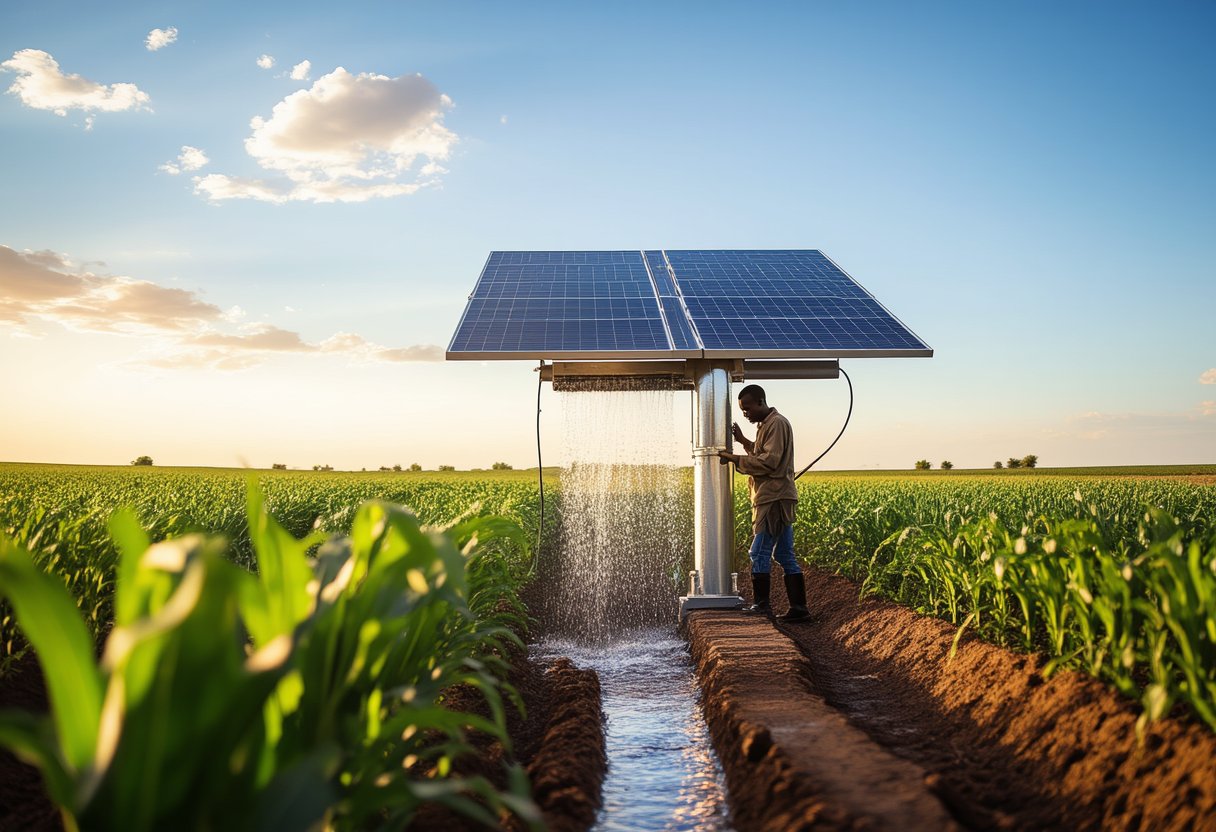Why Solar-Powered Water Pumps are the Future of Sustainable Agriculture
Solar-powered water pumps are revolutionizing sustainable agriculture. By harnessing renewable energy, these pumps provide efficient water supply solutions in resource-limited settings. This article explores their benefits, challenges, and potential impact on farming, enhancing food security while reducing carbon footprints.
Introduction to Solar-Powered Water Pumps
In recent years, Solar-Powered Water Pumps have emerged as a vital innovation in sustainable farming. Traditional water pumping systems often rely on fossil fuels or electricity from non-renewable sources, leading to increased operational costs and environmental concerns. In contrast, Solar-Powered Water Pumps utilize solar energy, providing an eco-friendly alternative that minimizes the carbon footprint associated with water irrigation practices. These systems not only enhance efficiency in water management but also contribute to energy independence for farmers. As water scarcity becomes an ever-increasing global concern, the role of Solar-Powered Water Pumps grows increasingly significant.
Benefits of Solar-Powered Water Pumps
One of the primary advantages of Solar-Powered Water Pumps is their cost-effectiveness over time. Although the initial investment may be higher than conventional pumps, the absence of ongoing fuel costs and low maintenance requirements pay off significantly. Furthermore, Solar-Powered Water Pumps can operate in remote areas where grid electricity is too costly to install, thus expanding agricultural practices into previously untapped territories. This renewable technology also promotes climate resilience, ensuring farmers can maintain productivity even in adverse weather conditions.
Challenges Faced by Solar-Powered Water Pumps
Despite their numerous advantages, Solar-Powered Water Pumps encounter several obstacles. The efficiency of these pumps can be heavily influenced by geographical factors, such as the availability of sunlight. In regions with prolonged cloudy weather, solar energy generation may fluctuate, which could limit the effectiveness of water distribution. Furthermore, the upfront costs can be prohibitive for smallholder farmers without proper financial support or incentives. As a result, addressing these challenges is critical to maximizing the adoption of Solar-Powered Water Pumps for a sustainable agricultural future.
Impact on Food Security
The integration of Solar-Powered Water Pumps in farming practices can directly influence food security. Increased efficiency in water usage leads to higher crop yields, especially in arid and semi-arid regions. Enhanced productivity not only guarantees sufficient food supply but also increases the incomes of farmers, fostering economic stability within communities. In this way, Solar-Powered Water Pumps play a significant role in combating malnutrition and hunger, particularly in areas where conventional irrigation methods fall short.
Future Trends and Innovations
Looking ahead, the future of Solar-Powered Water Pumps entails a range of innovative advancements. Companies are continuously exploring technological enhancements, such as integrating smart farming solutions and IoT devices to optimize water management strategies. Automated systems that coordinate watering schedules based on real-time weather data can dramatically improve resource utilization. As awareness of climate change grows, the demand for Solar-Powered Water Pumps is anticipated to rise, reflecting an increasingly proactive approach to agriculture.
Conclusion: Embracing Solar-Powered Water Pumps
In conclusion, the adoption of Solar-Powered Water Pumps is not merely an option but a necessity for sustainable agricultural practices. As food security remains a pressing global concern, amplifying the deployment of these renewable energy solutions will be critical. By addressing the technological and financial barriers that hinder their growth, stakeholders can work together to facilitate widespread acceptance and implementation. The path towards a more sustainable agricultural future is undeniably intertwined with the embrace of Solar-Powered Water Pumps.
